I cannot be convinced that great artists are moralists. Art is first appearances, then meaning
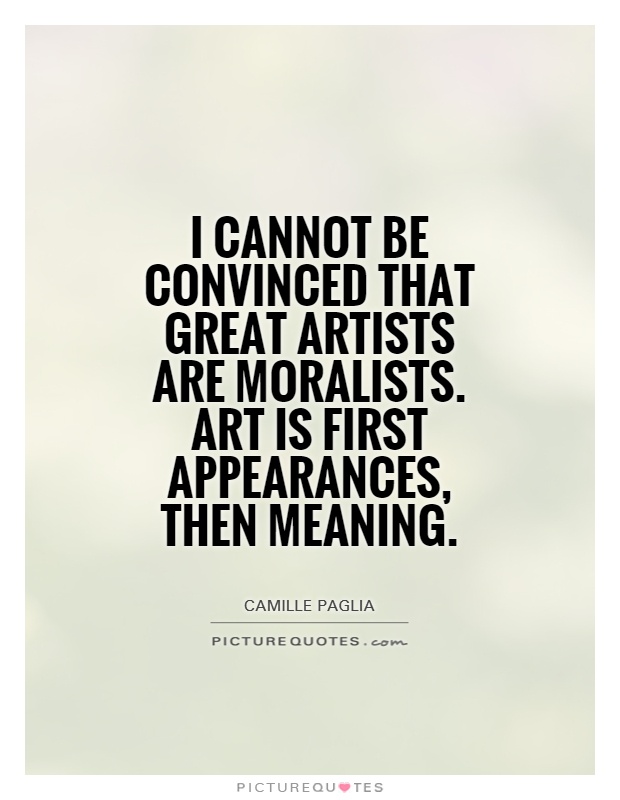
Great Artists QuotesFirst Appearance QuotesGreat Art QuotesArt Is QuotesI Can QuotesGreat Artist Quotes
I cannot be convinced that great artists are moralists. Art is first appearances, then meaning
Camille Paglia, a renowned cultural critic and feminist scholar, has long been a vocal advocate for the separation of art and morality. In her work, she argues that great artists are not necessarily moralists, but rather creators who use their craft to explore and express the complexities of the human experience. Paglia believes that art should be judged based on its aesthetic qualities and emotional impact, rather than its adherence to moral or ethical standards.Paglia's assertion that great artists are not moralists is a provocative one, challenging the traditional notion that art should serve as a moral compass for society. Instead, she argues that art is first and foremost about appearances – the visual and sensory experience that it offers to the viewer. According to Paglia, art should be appreciated for its ability to evoke emotions, provoke thought, and challenge conventional norms and beliefs.
For Paglia, the meaning of art is not fixed or predetermined, but rather open to interpretation and subjective experience. She believes that art should be allowed to speak for itself, without the need for moral or ethical judgments. In this sense, Paglia's view of art as first appearances, then meaning, suggests that the aesthetic qualities of a work are what ultimately define its value and significance.
Paglia's perspective on art and morality has sparked debate and controversy within the art world and beyond. Some critics argue that art has a responsibility to reflect and uphold moral values, while others support Paglia's view that art should be free from moral constraints. Ultimately, Paglia's assertion that great artists are not moralists challenges us to reconsider the ways in which we engage with and interpret art, encouraging us to appreciate its beauty and complexity on its own terms.

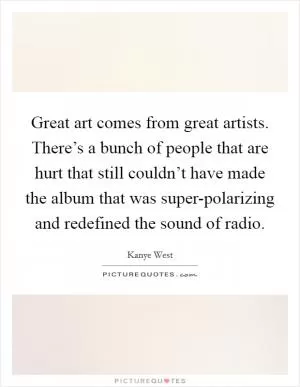

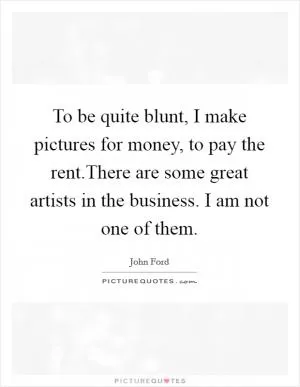
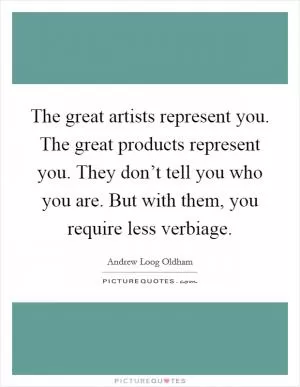


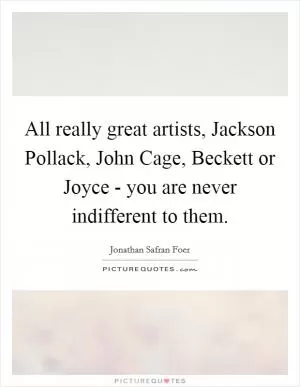
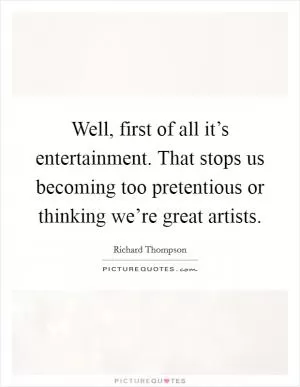
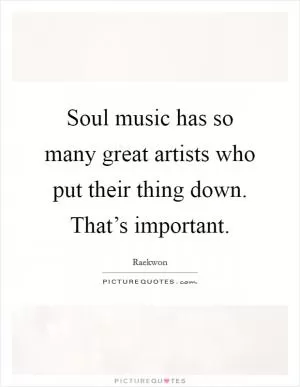
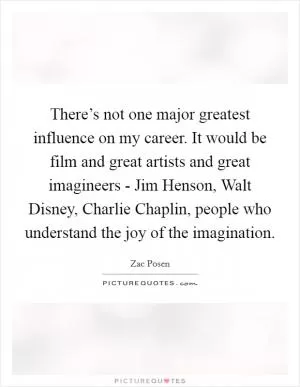

 Friendship Quotes
Friendship Quotes Love Quotes
Love Quotes Life Quotes
Life Quotes Funny Quotes
Funny Quotes Motivational Quotes
Motivational Quotes Inspirational Quotes
Inspirational Quotes